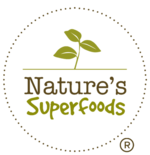-
No products in the cart.
Plant Protein Powder vs Whey Protein Powder – Which Is Better For You?

Whether you’re a seasoned athlete or want to start a healthy lifestyle by incorporating the proper nutrients, protein powder is a great way to meet your daily nutrition intake. They are easy to consume and can be found at almost any health supplement store. The two most common options are whey and plant protein powder. Although both make great protein sources, several key differences set them apart.
If you’re having a tough time choosing between whey protein or plant protein powder, you can refer to our explanation about the two below:
What Is Vegan Or Plant Protein Powder?
Vegan or plant protein powder is made with plant-based sources and is suitable for vegans or vegetarians who wish to build muscle and speed up recovery. There are several types of plant protein powder, such as below:
- Soy protein contains all nine essential amino acids, suitable for those who are lactose intolerant.
- Brown rice protein is created by treating the ground rice with an enzyme that separates starch and protein.
- Pea protein is made from peas and contains all nine essential amino acids, including branched-chain amino acids (BCAAs).
- Hemp protein derived from hemp seeds contains all the essential fatty acids and offers a nutty flavour.
- Pumpkin seed protein is high in healthy fat and protein. The fat is removed when curating protein powder, making it a low-calorie option.
What Is Whey Protein Powder?
Whey protein powder is an animal product made from cow’s milk, known as lactose (milk sugar). There are three types of whey protein powder: whey protein concentrate, hydrolysate and isolate:
- Whey protein concentrate is the most preferred option as it contains carbohydrates and fats, offering satisfying flavours.
- Whey protein hydrolysate is a pre-digested form of protein made by breaking the amino bonds in the protein, making it faster to absorb by the body.
- Whey protein isolate is highly concentrated, containing up to 90% of protein by removing fat and lactose.

What Are The Main Differences Between Whey Protein Powder And Plant Protein Powder?
To gain a better understanding of whey protein and plant protein powders, here are the key differences between the two:
1. Nutritional profile
Although whey protein has all the nine essential amino acids, plant protein generally offers more health benefits as they are rich in minerals, vitamins, fibre and antioxidants. Thus, whey protein offers more protein content than plant protein, but it is only good for muscle growth and repair. For a more healthier option, plant protein would be more ideal if that’s part of your fitness goals.
2. Taste and flavour
Both whey protein and plant protein powder come in various flavours. However, the taste of plant protein powder is slightly different as it is nutty or earthy. Most individuals can tell the difference in the taste if they have tasted both protein powders before. Whey protein has a creamy or milky-like taste, similar to milkshakes.
3. Source of the protein
The primary protein source of whey protein powder is cow’s milk, while plant protein is derived from various plant sources such as rice, soy, and peas. Whey protein also contains branched-chain amino acids (BCAAs), which can be found in protein-rich foods. Meanwhile, not all plant proteins contain BCAAs, as it depends on the plant source.
4. Ability to digest
Since the primary source of protein for whey protein powders is cow’s milk, it’s not lactose-free and may not be suitable for those with dairy restrictions. This is because it gets absorbed quickly by the body. Hence, it can cause several allergies or digestive problems, such as bloating or excessive gas.
Plant proteins are slightly easier on the digestive system as they don’t get absorbed as quickly as whey protein. Thus, those with sensitive digestive systems can consume plant protein without encountering any problems.
5. Amino acid content
Whey protein powder generally contains more amino acids than plant protein powder. It contains nine essential amino acids, making it a complete high protein source.
Plant protein powder does not contain all the amino acids; it depends on the protein source. For instance, the rice and pea protein combination includes all nine essential amino acids.
6. Vegan or vegetarian friendly
Whey protein powder is popular among bodybuilders, powerlifters, and rising athletes who want to build muscle because it contains a high protein content. However, due to the dairy ingredients used, vegans or vegetarians may be unable to consume whey protein.
Instead, plant protein powder will be ideal. Various forms of plant protein powder, such as pea and soy protein, cater to several dietary restrictions.
7. Sustainability & ethical factors
As whey protein is made with dairy, the production will have a negative impact on greenhouse gas emissions. Plant protein requires fewer resources, making it more environmentally friendly as it leaves a lower carbon footprint.
Furthermore, individuals who are vegan or vegetarian may not be too happy with whey protein as it derives from animals. They typically support animal rights, so they prefer to consume plant or vegan protein powder, which is only made with plant sources and no traces of animals.
The Best Plant-Based Protein 2025
1. Blended plant protein
Blended plant protein combines multiple sources such as rice, hemp and pea. This ensures that the plant protein powder has the complete amino acids and offers ample health benefits.
Nature’s Superfoods plant protein powder consists of a mixture of plant proteins such as pumpkin seed, pea protein, and brown rice protein.
2. Pea protein isolate
Pea protein isolate is the most well-known plant protein powder as it contains high protein content and has all nine essential amino acids. Pea protein is suitable for those who have allergies or are sensitive to particular foods as it’s hypoallergenic.
3. Hemp protein
Hemp protein contains omega-6 and omega-3 fatty acid content, which is an excellent option for those who wish to increase their fatty acid intake on top of getting protein.
4. Soybean protein
Soybean protein is known to have a high protein content and essential amino acids. Thus, it offers more nutrients besides pea protein than other plant protein powder options.
5. Brown rice protein
Brown rice protein can easily be digested and offers a mild taste compared to other plant protein powders. When consumed alongside other plant proteins, one may be able to get all the essential amino acids.
Conclusion
When it comes to choosing between whey protein or plant protein powder, it ultimately boils down to several factors, such as fitness goals, dietary restrictions, and values. Whey protein is the way to go if you wish to speed up muscle growth and recovery. But if you have dietary restrictions and prefer something more manageable for your digestive system, plant protein powder will be the ideal choice.

